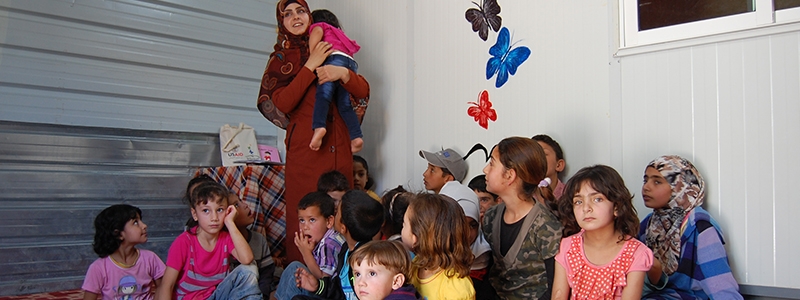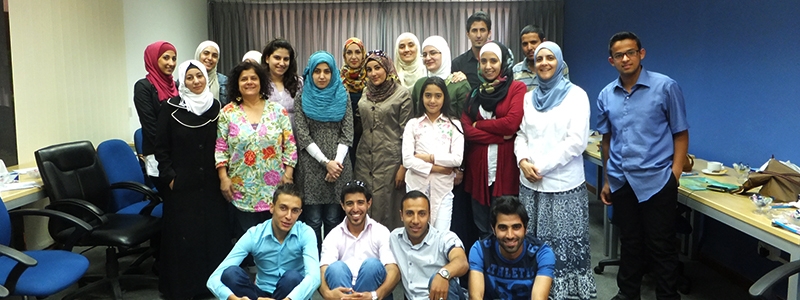Problem: In 2005, the researcher Rana Dajani noted, through study and empirical observation, that children in Jordan did not read for pleasure. Children read merely because of school curricula or for religious motives. The principal reason is that, like their parents before them, they did not develop a habit of reading for personal enjoyment. It is estimated that citizens of Arab countries, on average, read just one page per year, whereas in the USA the average is 11 books per year. As other such programs that attempted to improve these indices in the Middle East failed, Dajani decided to create a spoken reading session for children in a neighborhood mosque. The first session occurred in February 2006 and was host to 25 children. At the end of the session, the children were given a book to read at home, by themselves or with their parents. The following week, all of them went back of their own volition for another reading session.

Solutions: After beginning a reading session, Dajani began to train people, the majority of which were women, to read out loud and conduct sessions in their own neighborhoods. The project referred to these events as libraries. The sessions require few elements: an adult to read to the children, a venue, which can be open air or indoors, and approximately 20 books to get started. Sessions should occur regularly, once or twice per week, so that children can become accustomed to reading. The project is simple, flexible, inexpensive, and sustainable and can be adapted to the necessities of local culture.
Since the project's inception, it has published ten children's books on such topics including energy, water conservation and waste management, which are utilized to develop children’s awareness and the improvement of their behavior with regard to these issues. Among the project's most notable examples, one stands out for having improved the life of children in a refugee camp. Asma'a Rashed, a 20 year-old Syrian, who, because of the civil war in Syria, lives in a refugee camp in Za'atari, Mafraq, Jordan, was trained by the project in 2014 and began to read to approximately 30 children. She has also begun to write and illustrate her own stories. She was able to publish them in a community magazine and is currently being paid for her work. Furthermore, she was also rewarded with training in order to work as a journalist.

Outcomes: When they read, students learn about other communities, places, cultures and the experience of others. With that, they can make a difference in their own neighborhoods or cities as well as gain appreciation for, and understand people. Children learn to communicate, listen and express themselves as their imagination grows. They also become more confident in themselves. The project has already trained more than 700 women and established 300 libraries in Jordan alone. Women that participate in the project become leaders in their communities. Some of them have become social entrepreneurs; others have opened small businesses or gained employment. Their communities began to perceive that they could promote change without the need of outside help. This ideal has spread throughout the world. Up to now, the project has been implemented in at least 21 countries, including Bolivia, Lebanon, Egypt, Tunisia, Saudi Arabia, the United Arab Emirates, Qatar, Turkey, Malaysia, Thailand, Azerbaijan, Uganda, Mexico, the United States and Germany. It was adopted by Unesco to develop interest in reading and foment literacy among women. The initiative has garnered many awards, mainly at the 2014 Wise Awards.







